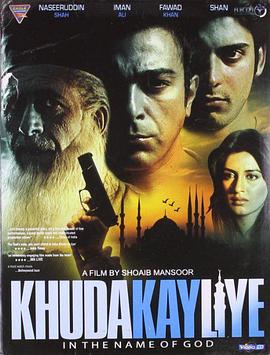本片讲述了911对巴基斯坦人和整个穆斯林世界信徒的影响。是一场在正统派和自由派穆斯林之间的战争。现状带来的冲击不仅存在于穆斯林和西方国家之间,而且存在于穆斯林信徒之间。受良好教育的现代穆斯林信徒因为他们的生活方式和西式服装而遇到了困难。正统派穆斯林指责西方世界仅仅凭借他们的穆斯林名字而片面的把他们看做是潜在的恐怖分子。这个矛盾让穆斯林为此受苦。以上提到的电影“KHUDA KE LIYE ”(以父之名),英文名字“IN THE NAME OF GOD”的主题。电影有趣的地方是如何将三个大陆所发生的事情联系起来。不像通常的印度和巴基斯坦电影基于浪漫,舞蹈和歌曲,本片基于一些非常严肃的问题之上,提出了很多具有争议的困扰穆斯林信徒的话题。
展开

